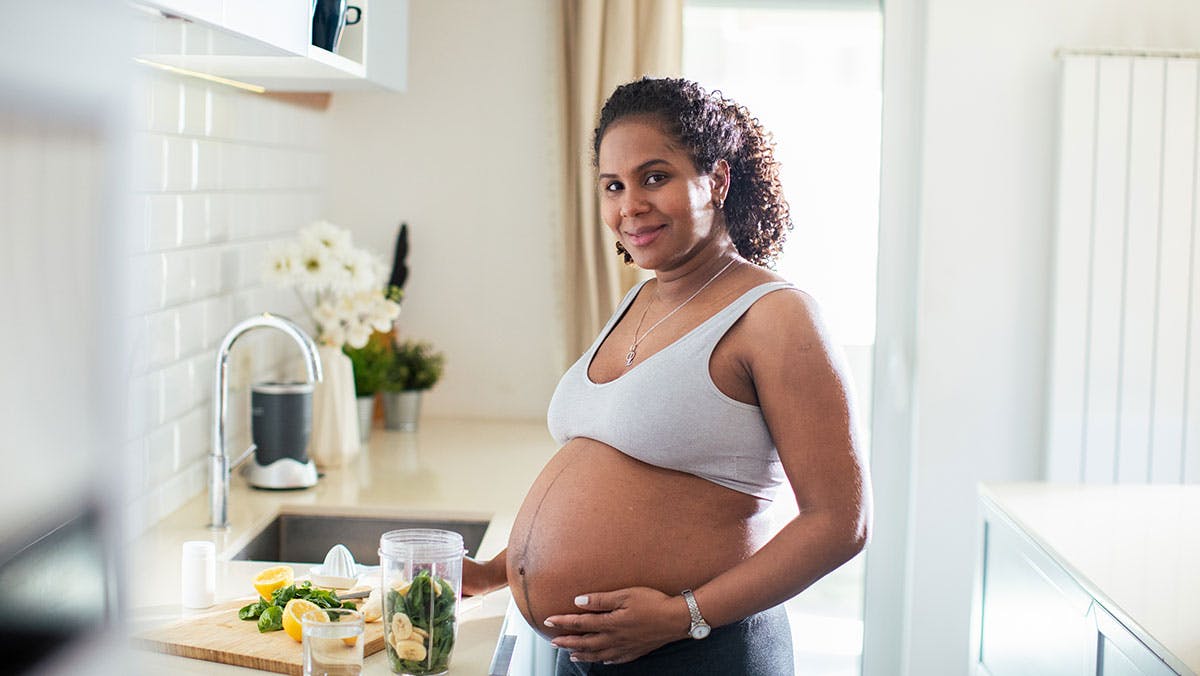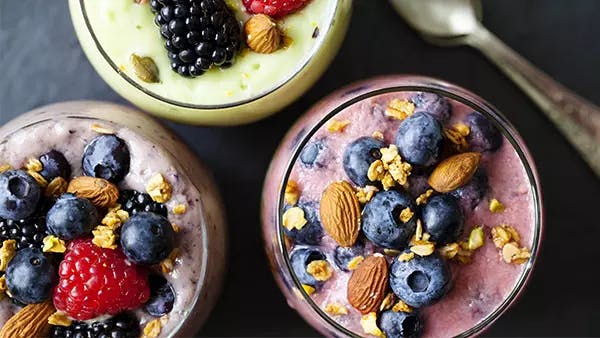Tips for a Healthy Pregnancy Diet for Latinas

Eating a well-balanced diet is one of the most important things you can do to ensure the health of your baby during pregnancy. But healthy eating doesn’t mean that you must follow one specific diet; instead, it means eating a variety of nutritious foods that are rich in vitamins and minerals to help fuel your body.
Latina mothers may face specific hurdles when it comes to getting the proper vitamins and nutrients during their pregnancies due to socioeconomic conditions, lack of support, a language barrier, and lack of resources.[1] Knowing what makes a healthy diet can help you make good eating choices during your pregnancy.
How to Eat Healthy During Your Pregnancy
Making healthy choices during your pregnancy has immediate benefits for you and your baby. Not only will getting an appropriate array of vitamins and minerals help you to feel your best, but your baby will get the nutrients they need to properly develop. Here are some tips for making healthy food choices during your pregnancy:
- Lower your intake of starchy vegetables, like sweet potatoes, corn, and peas, to lessen the likelihood of developing a high blood pressure disorder.[1]
- Make sure you’re getting enough of the nutrients you need during pregnancy: folic acid, calcium, vitamin D, choline, B-vitamins, vitamin C, iron, and omega-3 fatty acids.[2]
- A diet rich in fruits and vegetables has many health benefits, and should make up half your plate. Choose a mix of whole fruits and vegetables, and aim to eat a rainbow of colors.[2]
- Meet your calcium needs with low-fat dairy or calcium-fortified foods.[2]
- Decrease risk of gestational diabetes and preeclampsia
- Skip refined grains such as white bread and white rice, which are stripped of valuable nutrients during the refining process, instead incorporate whole grain options, such as oats and bulgur wheat into your diet.[2]
- Choose foods with healthy fats. Plant oils, nuts and fish are healthy sources of fat. Limit foods high in saturated fat, like red meat, and avoid foods with trans-fat.[2]
- Watch your sodium intake. Read labels on processed foods and choose fresh foods when possible.[2]
- Taking a daily prenatal multivitamin is a good way to fill any dietary gaps and to ensure you are meeting the increased nutritional needs of pregnancy. As with any supplement, we recommend you consult with your healthcare provider before use.[2]
Making Mexican, Puerto Rican, and Latin American Foods Healthy
There are so many staples of Latin American cooking that lend themselves to healthy eating: tomatoes, beans, avocados, and peppers are incredibly good for you and are loaded with nutrients. Here are some healthy ways to eat foods that you love and were brought up on:
- Rice and beans, or arroz con habichuelas, is a staple of Puerto Rican cuisine. Lessen the amount of salt and oil used when preparing this dish to make it healthier.[3]
- Plantains are common in Puerto Rican cooking, but many dishes call for fried plantains. Make them healthier by eating them baked or boiled.[3]
- Load up on vegetables and fruits like okra, jicama, avocado, chayote squash, prickly pear cactus paddles, mango, papaya, and passion fruit.[3][4]
- A great way to start a meal is with gazpacho, a chilled tomato soup, or black bean soup, which is loaded with nutrients and fiber.[4]
- Americanized Mexican food tends to be heavy on cheese and sour cream. Instead, load up on salsa![4]
- Chili peppers are an incredible way to add big flavor and vitamins A and C to just about any dish. The larger the chili, the milder it probably is.[4]
One way to make sure that you’re helping to get all the vitamins and minerals you need during your pregnancy is to supplement with a prenatal vitamin like Centrum Maternal Health PreNatal Vitamin Gummies. Take care of yourself during your pregnancy, so that when your little one arrives, you’re in good shape.










